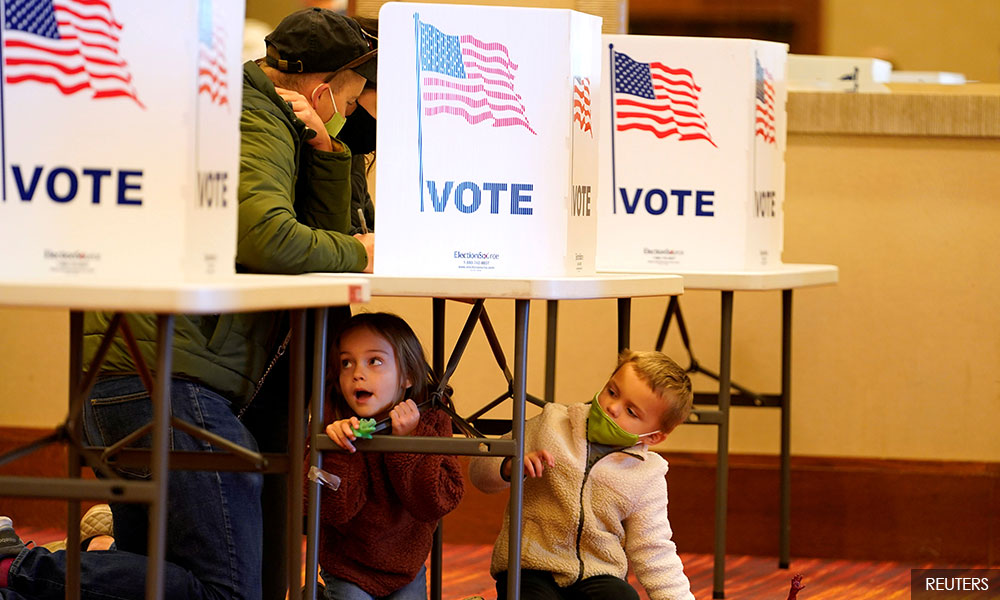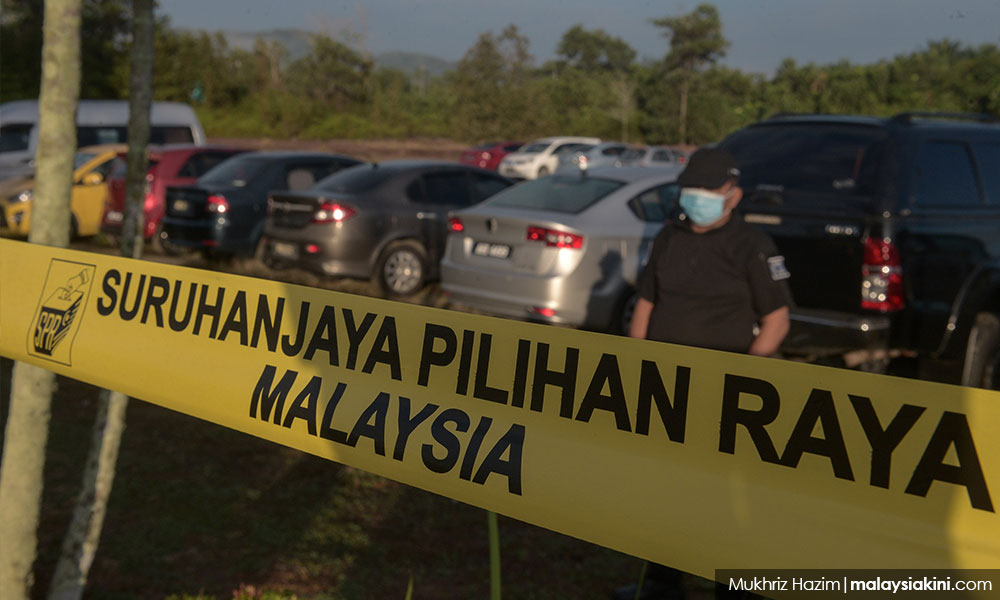The Coalition for Clean and Fair Elections (Bersih 2.0) launched a report today recommending the expansion of advance voting in Malaysia, particularly for outstation voters and existing domestic postal voters.
Researcher Chan Tsu Chong - who was commissioned to conduct the study - said although physically voting at a polling station often represents the gold standard in voting arrangements, advance voting could be the country's "second-best option".
In the context of Covid-19, advance voting is seen as one way to reduce crowds in polling stations on election day.
Speaking on the recently postponed Sarawak elections, Bersih 2.0 chairperson Thomas Fann said that even at the height of the pandemic, the United States, alongside many other countries worldwide, was able to hold a major election.
"(Even in February), there is no guarantee that Covid-19 is going to be under control. So are we going to have another emergency extension?
"No, I think that would be unacceptable for the people of Sarawak or Malaysia just to use the emergency (as an excuse)," said he in a virtual press conference today.

Fann urged the Election Commission (EC) to look into measures that would enable elections to be held safely in the country and voters to cast their votes without interstate travelling.
"Even in Sarawak, there are many people working in Kuching, but their constituencies are in rural areas, in Miri, Bintulu, or Sibu. Instead of them (the voters) travelling back, provide an advance (polling) voting centre in Kuching itself to minimise the movement," he said.
Based on the Department of Statistics' estimation, there were 149,369 interstate migrations in 2018 compared to 157,976 in 2016.
Bersih's report stated that the 1991 and 2000 population censuses showed about 20 percent of the population lived outside their state of birth, with approximately half of the Klang Valley (Malaysia's economic centre) population born in other states.
"So, we feel that a lot of voters are outstation voters. The question is, how do we ease the voting process for them?
"Secondly, in the context of Covid-19, we know interstate travel is one of the causes for the spread of Covid-19, so we suggest that outstation voters be given the right to vote through advance voting," said Chan in the same conference today.
Easing the voting process
Advance voting is conducted in a secure environment similar to actual polling day, in that voters will cast votes in designated advance voting polling stations.
However, there are concerns over the security of ballot boxes as they are then usually kept until polling day before the votes are counted.
South Korean and Australian case studies, shown in the report, have shown how advance voting can be designed effectively and safely to improve voting access for a wider segment of voters who may have difficulties voting on the ordinary polling day.
At present, the advance voting system in Malaysia is limited in scope.
The report entitled "Improving Access to Voting in Malaysia" proposes that the EC set up at least one centralised advance voting polling station in each state. Voters apply to take part in advance voting by submitting proof of eligibility manually at EC offices or centralised advance voting polling stations.

Outstation voters can choose, during registration, to vote in advance in any centralised advance voting stations across the country while still retaining their vote for their constituency.
Chan highlighted that this would be especially helpful for East Malaysian voters living and working outside their home constituency who face greater barriers to casting their vote.
"Under the proposed voting system, they can vote in Selangor as an advanced voter, but their vote will go to the constituency they are registered with," he said.
Chan claimed that this voting reform would enable voters to save money on travelling to their constituency for elections.
He noted that those travelling back for elections in Sarawak now would have to self-quarantine for two weeks.
For many, it might also take more than one day after they land in the state in order to reach their constituency, which could be in rural parts of the state.
Chan added that this barrier to voting is evident in Sarawak's low voter turnout.
In particular, he cited South Korea, which held a national election during the Covid-19 pandemic where they expanded access to more groups by organising advance voting polling stations.
In the short term, it is proposed that advance voting polling stations shall be piloted in the next general election or state election for Sabahan and Sarawakian voters who are residing in Peninsular Malaysia and vice-versa.
Among the report's recommendations is the immediate implementation of automatic voter registration and Undi18 reforms, free unsuppressed voting environment for military and police personnel, additional polling streams within a polling station and a fixed-term Parliament act, among others.
Bersih 2.0 said Covid-19 would be around for a long time, and human beings will have to learn how to live with the virus and learn how to adapt to this new challenge and the new norms. - Mkini



No comments:
Post a Comment
Note: Only a member of this blog may post a comment.